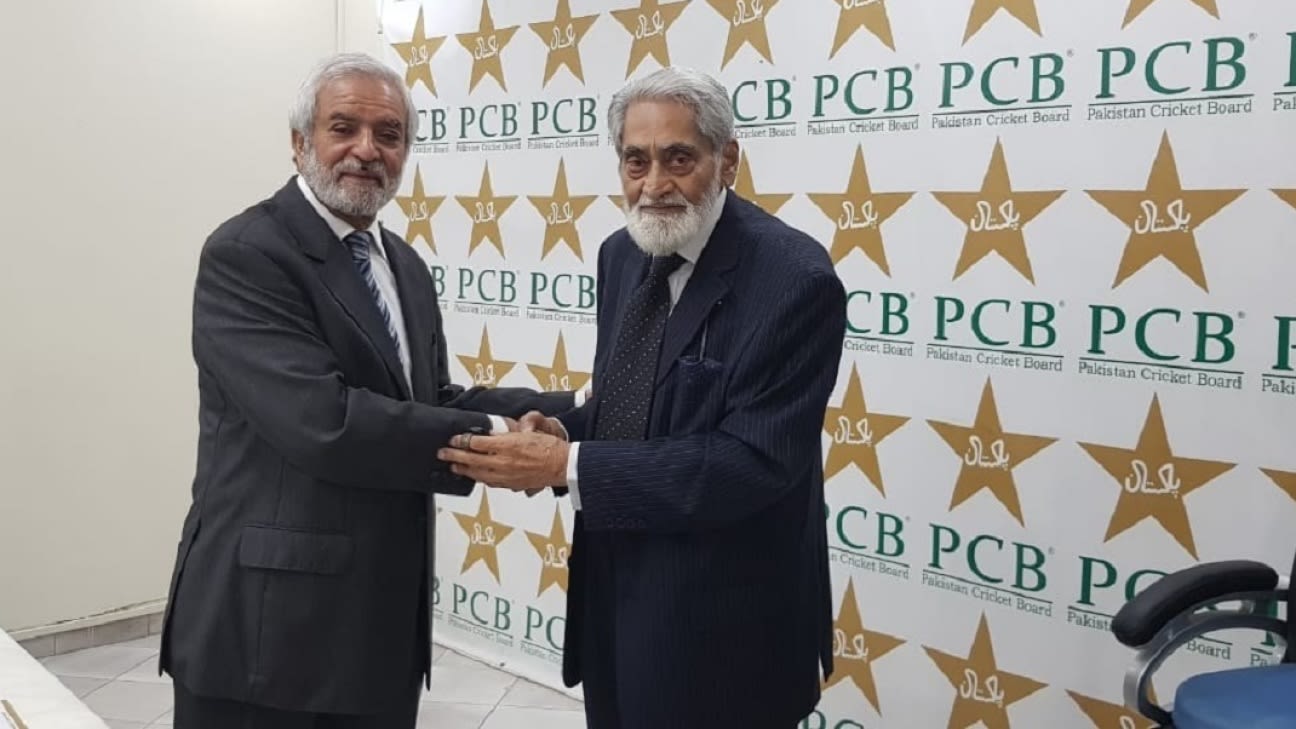
The PCB will have a female director on the board for the first time in its history, with human resource executive Alia Zafar appointed to the position. The PCB rewrote its constitution last year, revoking the Board of Governors' (BoG) membership, and reduced the numerical strength of the cricket-playing associations from eight to three in a bid to offset their influence. In the process, it planned to bring in four independent directors to live up to the corporate governance practices.
Besides Zafar, the three independent members are Javed Kurieshi, a finance executive, Asim Wajid Jawad, an expert in economics and Arif Saeed, an economist and corporate executive. Kurieshi and Saeed are appointed for three years while Alia and Wajid retain the position for two years.
Before the constitutional overhaul, the composition of the BoG included four regional representatives (the top four regional teams from the Quaid-e-Azam Trophy) and four representatives of services organisations (the top four departmental teams), and two direct nominees from the patron in chief - the prime minister of Pakistan. Now, an 11-member board will have two direct nominees by the patron, a move that sees power consolidated at the top and stripped from the teams that play domestic competitions. Three members from among the cricket associations will be elected presidents on a rotational basis every three years, while four independent directors, at least one of whom has to be female, will be named by the nomination committee.
Until today, the PCB had been functioning on the basis of the old formation, but after appointing the four independent members, all previous members have been released from the Board. The remaining three members - the head of three associations - will be appointed following completion of the election process, according to the PCB.
"Following promulgation of the new PCB Constitution in 2019, these distinguished members, on my request, had agreed to continue through the transitional period and provide the PCB management appropriate guidance through their knowledge and insight," PCB chairman, Ehsan Mani, said. "The fact that these BoG members unanimously approved the appointment of the independent members, which now changes the outlook and composition of the BoG, illustrates their respect for the PCB Constitution 2019 and Pakistan cricket at heart.
"However, the PCB will continue to benefit from their experience and understanding, by including them as members on the Cricket Associations' interim executive committees (IECs), which will be confirmed shortly. The first and the most critical assignment of the IECs will be to supervise the registration of clubs so that cricketing activities can resume at the grassroots level. I welcome the newly-appointed independent members to the BoG, especially Ms Alia Zafar, the first female independent member, which is a giant step forward in enhancing the PCB's governance structure."
Presently, only six provinces - Balochistan, Central Punjab, South Punjab, Khyber-Pakhtunkhwa, Sindh and Northern - will be eligible to play first-class cricket. Out of six, three will have their heads on the PCB Board on a rotation basis. Domestic cricket in Pakistan has been played among departments and regions for nearly 50 years, starting in the early 1970s, with the departments historically enjoying great influence in Pakistan cricket through the Board of Governors.
The new constitution, however, still allows departments to maintain a foothold in cricket as sponsors of the domestic sides. The territorial regions of each of the six cricket associations are based on the bifurcation of each province in the country, and the PCB will fund them with the help of a principal sponsor approved for an initial period of up to five years. The departments, which had so far maintained cricket teams, will, according to the new constitution, "be allowed first right of refusal to be the principle [principal] sponsor of the cricket association and the city cricket association".
ESPNcricinfo understands the PCB had been engaged with departments for sponsorship funding but no department is currently willing to spend money without having a playing role. Nearly every department has shut down their cricket departments and revoked hundreds of contracts, though a handful of prominent players who had full-time jobs have been retained on their payrolls.















 Phone: (800) 737. 6040
Phone: (800) 737. 6040 Fax: (800) 825 5558
Fax: (800) 825 5558 Website:
Website:  Email:
Email: 






